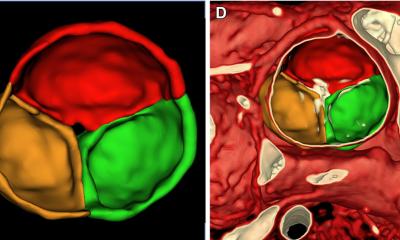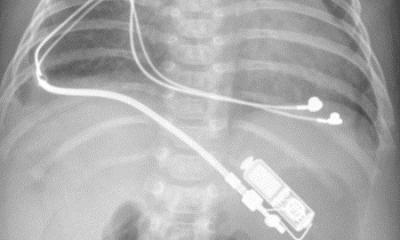Small size in early pregnancy linked to poor heart health later in life
Early fetal growth and risk factors for cardiovascular disease
Poor growth in the first three months of pregnancy is associated with a range of cardiovascular risk factors in childhood, finds a study published on bmj.com.

The findings add to a growing body of evidence and suggest that the first trimester of pregnancy may be a critical period for cardiovascular health in later life.
The first trimester of pregnancy includes the ‘embryonic phase’ (a period of rapid development when the heart and other major organs start to form). So a team of researchers in the Netherlands decided to examine whether poor growth during this period is associated with cardiovascular risk in childhood.
The study involved 1,184 school age children with first trimester crown to rump length measurements (commonly used to estimate fetal age) whose mothers had a known first day of their last menstrual period and a regular cycle. Several factors, such as mothers’ age, ethnicity, education, smoking status, body mass index and blood pressure were also recorded. At around age six, children were assessed for cardiovascular risk factors, including body mass index, body fat distribution, blood pressure, cholesterol levels and insulin concentrations.
Using first trimester crown to rump length, the researchers split the group of fetuses into fifths. Compared with those in the highest fifth, those in the lowest fifth (the smallest fetuses) had, at age 6, significantly more total fat mass and android fat mass (fat stored around the abdomen), higher diastolic blood pressure and an adverse cholesterol profile. First trimester growth restriction was also associated with an increased risk of clustering of these cardiovascular risk factors in childhood.
The authors acknowledge that some of their associations may have arisen by chance, but suggest that the first trimester might be a critical period for cardiovascular and metabolic function. “Further studies are needed to identify the underlying causal biological mechanisms and long term consequences,” they add. Future strategies to improve cardiovascular health “may start from early pregnancy onwards or even before conception,” they conclude.
In an accompanying editorial, Professor Gordon Smith and Catherine Aiken from the University of Cambridge say despite some limitations, this study adds to a growing body of evidence that fetal growth restriction is associated with an increased risk of cardiovascular – and many other – diseases in later life. But they add “we need a deeper understanding of the strength, nature and mechanisms of the reported associations before rushing to intervene.”
27.01.2014





